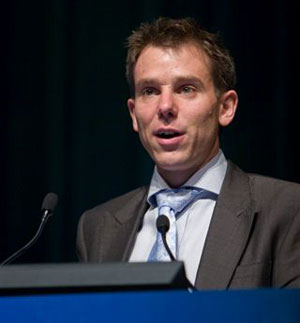
By Angela Dorizas in Melbourne
After three days of discussion and debate, the Local Government Constitutional Summit has reached a unanimous decision to reform the Australian Constitution.
The Summit has developed a blueprint for constitutional reform that proposes the inclusion and recognition of local government in the Constitution to "expressly empower" the Commonwalth to fund local councils and to ensure "the right of people to democratically elect their local council."
The Australian Local Government Association (ALGA) president Geoff Lake said the Summit had decided that local government ought to be included in the Constitution to improve accountability between councils and their communities.
“It’s more than symbolic recognition but its not radical change,” Cr Lake told Government News.
“This is largely business as usual, as far as the way government will continue to operate from the community’s point of view, but what it does is it strengthens accountability between people and their local council and it fixes up some of the outdated institutional structures which are either incorrectly recognised or not recognised at all in the current Constitution.”
Cr Lake said the first proposal, the clear expressed provision of the power of the Federal Government to fund local government directly, would put an end to federal funding being channelled through the states.
Cr Lake was confident that this change would not give the states any cause for alarm.
“There is nothing in the change that’s been proposed today that undermines any state sovereignty of state powers, so I don’t think there will be a problem,” he said.
“I think as far as the states are concerned, as long as we’re not in the way of a bucket of money they will have little issue with the concept of a strengthened local government that has increased accountability with local communities and has a clear financial lifeline to the federal government.”
Cr Lake said the challenge for local government now was to gain bipartisan support for the proposed reforms. While the Federal Government said it supported constitutional recognition of local government, the Coalition was not prepared to make a decision until it saw the exact wording of the question to be put to the public in a referendum.
ALGA plans to meet with the Opposition Leader Malcolm Turnbull and Shadow Local Government Minister Warren Truss to discuss the blueprint for reform. The Summit expressed confidence in their constituents to support the reform.
"I think there is a lot of work that local government needs to do to build the case for change, but I think ultimately the sort of principles and values that the Australian people hold dear are things like the accountability of their elected representatives,” he said.
“If local government can demonstrate, as I think we can, how these changes will increase that accountability at the local level, I think we’ll find a fertile ground amongst voters across the country to support that kind of change.”
The way forward
Constitutional law expert Professor George Williams said it was an "historic summit" that has taken local government to the next stage in the process of reform.
"They’ve moved beyond the vague notion of constitutional reform, which the [Federal] Government had agreed to support them on, to some quite specific outcomes that now the Government can act on," Professor Williams told Government News.
"It means that local government is in a position to negotiate with the Government and the Opposition and actually move towards a referendum."
Professor Williams said he was satisfied with the direction local government was taking and endorsed the proposals made.
"I think the words they have come up with are excellent," he said.
"They’re pragmatic, they do deal with some of the central problems around issues of funding and also issues of recognition and they do so in a way that can be made part of a referendum that will be safe and sensible.
"I don’t see any weaknesses there. I think now the real task is to take those principles and draft them into the technical text, which won’t be difficult."
Professor Williams said the Australian people were ready for constitutional change that would improve local government and their communities.
"One of the reasons I am here is because I think there is a strong mood in the Australian people to start fixing our federal system," Professor Williams said.
"They know that often services are delivered at a second rate quality and it does go to the fact that we’ve got a lot of problems with the way our government is structured. This is one part of that large debate, but it is a good place to start on those issues.
"It’s failed twice in the past, but I think on this occasion if it was to get up it must be put as part of that larger debate and I think it has a realistic prospect of being passed."
Professor Williams said it was unlikely that the referendum would be held before 2010, but did not rule it out.
"I think it is realistic to say that if the Government wants to move this could be put in about 18 months time," he said.
"It really depends on the Government’s sense of priorities on which I have no information."





Leave a Reply